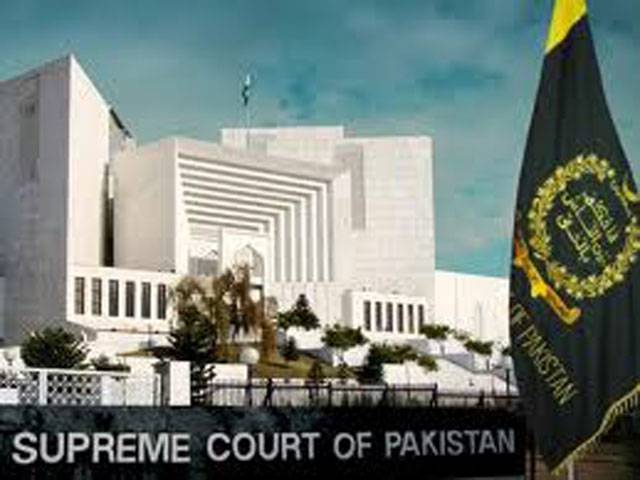ISLAMABAD - The second day of the Supreme Court proceedings in a petition seeking reconstitution of the Election Commission of Pakistan was also consumed in the preliminaries with the three-judge bench urging Dr Tahirul Qadri to first establish his locus standi before presenting arguments in support of his contention.
The three-member bench headed by Chief Justice Iftikhar Muhammad Chaudhry said if they allowed a dual citizen to challenge a constitutional institution, then tomorrow another dual national would approach the apex court with a petition against strategic installations.
At one stage, Dr Qadri told the court that his petition was quo warranto, which brings the respondents under obligation to prove how they are holding their offices in the ECP. But the chief justice immediately said that the quo warranto was beyond the apex court’s scope and that the petitioner would have to approach the relevant forum.
At the end of the proceedings, the Pakistan Awami Tehrik chairman said while talking to journalists that the court was within its right to ask as many questions as it thinks are necessary before making up its mind about the plausibility and substance of the arguments and coming up with a verdict which will have far-reaching consequences.
During the hearing, Justice Gulzar Ahmed remarked that dual nationals have no right to approach the court and challenge the strategic assets or foreign and monetary policies, or attack the constitutional institutions. He said Dr Qadri had come to Pakistan after a long time and wanted to change the political scenario, which would not be allowed.
Dr Qadri submitted in the court his concise statement and the notification about his Canadian citizenship.
The chief justice said according to his own statement the petitioner uses Canadian passport for travel outside Pakistan, which clearly means that (at that time) he is a foreign national, not a Pakistani. “We have great anxiety because for an ordinary citizen it may be alright, but it does not suit a person of his (Qadri’s) stature.”
No Muslim country gives oath of allegiance to a person who wants to become its national. Article 5 of the Constitution demands loyalty to the state and obedience to the Constitution, said the chief justice, adding that a Pakistani should be a Pakistani wherever he may be, but you have taken oath to show allegiance to Queen Elizabeth and her successors.
The chief justice further said that the bench would also like to know when the petitioner had first got the news about the constitution of Election Commission. “In June”, replied the petitioner. On this, the chief justice said the petitioner came to Pakistan in December but he moved the court in February.
Justice Gulzar Ahmed suggested: “Your allegiance is divided. Your allegiance to that country (Canada) is more than to Pakistan”.
The CJ said: “How can we dissolve the Election Commission of Pakistan (ECP), which has prepared the electoral rolls and organised by-elections? Little time is left for the upcoming general elections and we would never allow anyone to derail the democratic system. Much water has flown under the bridges.”
He also made it clear that that concept of martial law has been buried for good and now no one can go for this even if he wants to.
The CJ said the Election Commission of Pakistan, established under 18th Amendment had held the by-elections which were validated under the 20th Amendment. The ECP has not only prepared the electoral lists but has done many other things. The politicians who became members of Parliament as a result of the elections held under the ECP had not challenged the polls body’s composition. Similarly, he said, nobody else has questioned the status of the ECP.
He said this was being done by a person who was not eligible to become a parliamentarian because of the bar under Article 63(1)(c) and who had sworn allegiance to Queen Elizabeth and his successors.
“Do you have precedents to support your argument regarding locus standi,” the court asked. On this, Dr Qadri referred to the judgments in cases of Shela Zia, Malik Asad Ali, Shahid Orakzai and Dr Mubashir Hassan.
The court said none of them is a foreign national.
When Dr Qadri, instead of listening to the court, spoke a bit loudly Justice Azmat Saeed asked him whether he had come for a debate with the judges. The judge said there was a court decorum, which everybody was supposed to observe.
Dr Qadri said Article 51(2) talks about the qualification of voter, which he fulfills and in that capacity has right to file this petition. The chief justice said there was no cavil with this provision. But when you are outside Pakistan you are foreign national, there you present yourself as a Canadian citizen. Qadrisaid Shafqatullah Sohail, a Canadian citizen, had filed petition in the memo scam. The court questioned him to show it the order about his locus standi.
The bench will resume the hearing on Wednesday (today).
Thursday, April 25, 2024
Dissolving ECP out of question

Pakistan to take on New Zealand in 4th T20I today
5:41 PM | April 25, 2024
IOC Refugees Olympic Team to be announced on May 2
5:38 PM | April 25, 2024
FC man martyred in Bannu gun attack
5:37 PM | April 25, 2024
Mohsin Naqvi reconstitutes women's selection committee
5:37 PM | April 25, 2024
Supreme Court reinstates Balochistan Assembly speaker, annuls ECP's decision
5:34 PM | April 25, 2024
Musk vs Australia
April 25, 2024
Reforming Rehab
April 25, 2024
Tax It Right
April 25, 2024
Academic Uprising
April 24, 2024
Cooperation Momentum
April 24, 2024
Ending animal suffering
April 25, 2024
AI governance
April 25, 2024
AI concerns
April 25, 2024
Population paradox
April 24, 2024
Unveiling differences
April 24, 2024
ePaper - Nawaiwaqt
Advertisement
Nawaiwaqt Group | Copyright © 2024





